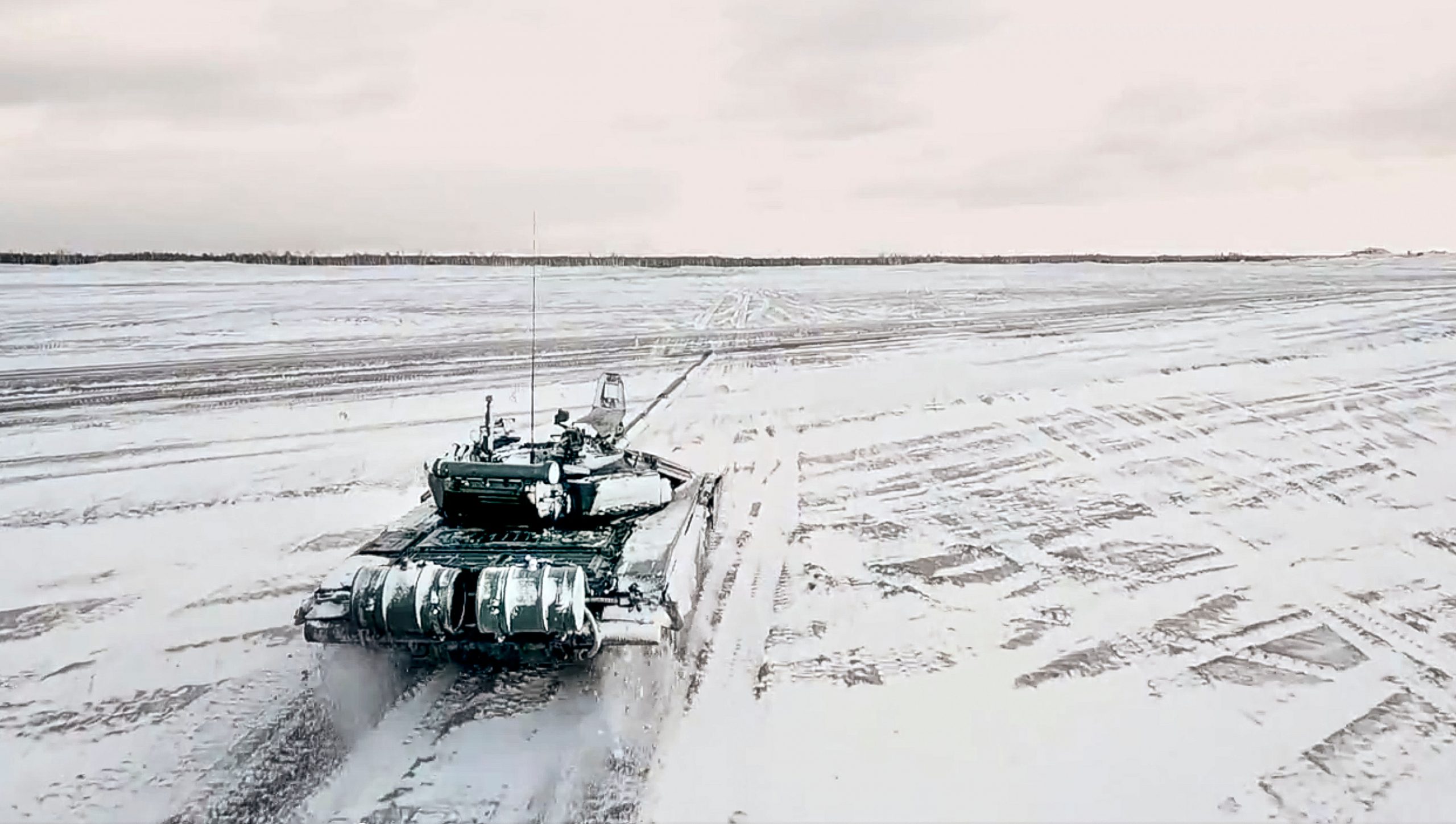President Joe Biden is sending about 2,000 troops from Fort Bragg, North Carolina, to Poland and Germany this week and sending part of an infantry Stryker squadron of roughly 1,000 troops based in Germany to Romania, a senior administration official said Wednesday.
The military moves come amid stalled talks with Russia over its military buildup at Ukraine’s borders. And they underscore growing fears across Europe that Russian President Vladimir Putin is poised to invade Ukraine — and smaller NATO countries on the eastern flank worry they could be next.
Also read: UK’s embattled PM Boris Johnson seeks reset with major economic plan
The official spoke on the condition of anonymity to discuss military moves not yet announced.
The daily El Pais published two documents purported to be written replies from the United States and NATO last week to Russia’s proposals for a new security arrangement in Europe. The U.S. State department declined to comment on them.
Also read: Kim Jong Un’s wife, Ri Sol Ju appears in public after 5 months
In reference to the second document, NATO said that it never comments on “alleged leaks.” But the text closely reflects statements made to the media last week by NATO Secretary-General Jens Stoltenberg as he laid out the 30-nation military organization’s position on Russia’s demands.
The U.S. document, marked as a confidential “non-paper,” said that the United States would be willing to discuss in consultation with its NATO partners “a transparency mechanism to confirm the absences of Tomahawk cruise missiles at Aegis Ashore sites in Romania and Poland.”
Also read: FBI urges US athletes to carry burner phones to Beijing Winter Olympics
That would happen on condition that Russia “offers reciprocal transparency measures on two ground-launched missile bases of our choosing in Russia.”
Aegis Ashore is a system for defending against short- or intermediate-range missiles. Russia argues the site in Romania could be easily adapted to fire cruise missiles instead of interceptors, which ram their target and do not carry warheads, a claim that Washington has denied.
Also read: Leaked text suggests possible US-Russia missile arrangement
Russian President Vladimir Putin again mentioned the possibility Tuesday, saying that “there are MK-41 launchers there that could be configured for firing Tomahawks.” He said they “are offensive systems that could reach thousands of kilometers into our territory. Isn’t that a threat to us?”
The U.S. document said Washington would have to consult with NATO allies on the potential offer, particularly with Romania and Poland.
Kremlin spokesman Dmitry Peskov refused to comment on the leaked documents, saying only that “we didn’t release anything.” In comments to the state RIA Novosti news agency, Russia’s Foreign Ministry also refused to confirm or deny that the documents published by El Pais were authentic.
Also read: UK’s embattled PM Boris Johnson seeks reset with major economic plan
Fears of a Russian invasion of Ukraine have mounted in recent months, after Putin deployed more than 100,000 troops to areas near Ukraine’s borders, including in neighboring Belarus, backed by tanks, artillery, helicopters and warplanes. Russian officials have insisted that Moscow has no intention of invading.
The U.S. underlined after its written proposals in the leaked document that “progress can only be achieved on these issues in an environment of de-escalation with respect to Russia’s threatening actions towards Ukraine.”
In his first public remarks on the standoff in more than a month, Putin on Tuesday accused the U.S. and its allies of ignoring Russia’s central security demands but he said that Moscow is willing to talk more to ease tensions over Ukraine.
Also read: Kate takes over as royal rugby patron from Harry
His remarks suggested that a potential Russian invasion may not be imminent and that at least one more round of diplomacy is likely.
After talks in Kyiv Wednesday with Ukrainian President Volodymyr Zelenskyy, Dutch Prime Minister Mark Rutte underlined that “it is essential for dialogue to continue.” If not, Rutte said, “it is clear that further aggression against Ukraine will have serious consequences.”







